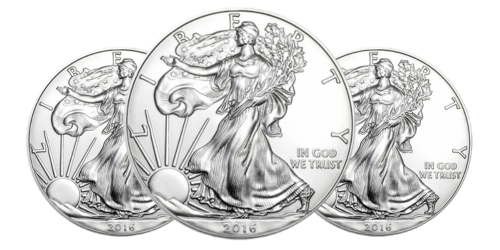Friedrich August von Hayek and the Austrian School
Friedrich August von Hayek was a familiar proponent of the Austrian School of Economic Thought and one of the most profound thinkers on economic theory and political philosophy.
Hayekian (often used interchangeably with the term Austrian economics, Hayek’s perspectives are a subset of the Austrian School of thought) economics primarily defends individual liberty, decentralized decision-making, and the role of knowledge that molds economic systems. At the same time, he criticized centralized planning while supplementing their knowledge of the spontaneous order of markets and the dangers of encroachment by government institutions; Hayek quite thoughtfully offered an appealing vision of society operating well on the premised concepts of freedom and self-organization. His works, including The Road to Serfdom and Constitution of Liberty, became vehicles for the dissemination of ideas and remain a highly relevant discourse still today on the balance that must exist between a market-driven society and one imposed upon by the government.
The Knowledge Problem in Hayekian Economics
The crux of Hayekian economics consists of what has come to be known as the knowledge problem: that no single individual or central authority has the full knowledge needed to make effective decisions for an entire economy. Hayek suggested that the very nature of knowledge is dispersed, resting in particulars held by individuals and businesses within their respective settings. In this sense, dispersion makes central planning at least inherently flawed and inefficient. Hayek’s most famous exposition of this idea was in his 1945 essay, The Use of Knowledge in Society. Here, he demonstrated how market prices act as signals whereby information about supply and demand is aggregated and transmitted efficiently.
For instance, with a good becoming increasingly scarce, the rising price will urge the consumers to economize on it and will incentivize the producers to increase the supply.
This coordinating behavior happens without any overriding authority and further indicates the tremendous abilities of the market system in processing and embodying dispersed knowledge.
He thus contrasted such market efficiency with the failures of central planning, which he believed suffered from the inability to access or process the vast, dynamic, and localized information necessary for effective decision-making. It was this principle that lay behind his critique of socialist economies, since Hayek held that even the most well-intentioned planners would lack the information necessary to allocate resources efficiently. By emphasizing the superiority of decentralized markets in solving the knowledge problem, Hayek laid a foundation for his broader economic philosophy.
The Concept of Spontaneous Order
Another cornerstone of Hayekian economics is the concept of spontaneous order. Hayek believed that complex systems, such as markets, societies, and the legal framework, often develop through spontaneous order – that is to say, without central direction. According to Hayek, spontaneous order is created through the self-interest of individuals in a rules-based system; therefore, this would lead to an end that would benefit society. The markets can be one of the best examples of it. Buyers and sellers, through personal gain, interact in such a way that resource efficiency, innovation, and wealth creation are generated. Hayek drew parallels with natural systems, like ecosystems, which produce order and stability without the action of any controlling intelligence, mind, or spirit. The more important thing, however, is that Hayek reemphasized that such orders are “organic” and, therefore, cannot be artificially created. The attempts to impose bottom-up designs almost always end in unexpected culprit explosions.
For example, government interventions often disrupt the supply-demand balance to stabilize markets, leading to shortages and surpluses.
Critique of Centralized Planning and Government Intervention
Hayek was one of the strongest opponents of centralized economic planning and the increase of government intervention, which he considered not only an economic evil but also a threat to individual freedom. In his famous book, The Road to Serfdom, Hayek expresses that central planning, despite noble intentions, always weakens freedom and concentrates power in the hands of a few.
Hayek’s critique of socialism was based both on practical and philosophical grounds. On practical grounds, he said that central planners cannot allocate resources effectively because of the knowledge problem.
On philosophical grounds, he said that the precondition of giving governments wide-ranging control over economic life was a cue to authoritarianism.
As governments increase their power through market regulation and wealth redistribution, they tend to trespass against citizens’ freedom process, which Hayek considered inevitable and unsafe. Hayek also rejected Keynesian economics, especially its prescription for using fiscal and monetary policy to stabilize economic cycles. He believed such intervention artificially set low interest rates and distorts market signals, leading to malinvestment – the ineffective distribution of capital to unproductive ventures. These distortions subsequently create economic booms followed by painful busts, such as the Great Depression and further financial crises. While Hayek accepted some government functions in protecting property rights and the rule of law and providing public goods, he was wary of overreach. According to him, governments must play the role of arbiters who guarantee a stable legal environment within which individuals can pursue their aims freely.
The Role of Economic Freedom and Individual Liberty
Economic freedom for Hayek was not to be conceived independently of individual liberty. Free markets promote prosperity and guarantee personal and political liberties. In his book, The Constitution of Liberty, Hayek investigated how liberty coexists with the rule of law and pointed out that a functioning market economy depends on a predictable framework of law.
Hayek defined liberty as the absence of coercion, whereby men can act according to their own plans and decisions or arrange for things to happen as they want.
He believed that the system based upon the rule of law ensures justice and predictability, allowing individuals to make long-term plans and undertake voluntary exchange.
In addition, Hayek viewed liberty as a necessary condition for innovation and progress. This freedom to act allows for discovery and learning through trial and error, which leads to better methods of doing something beneficial to society. On the contrary, he said that collective systems elevate group objectives higher than individual freedom, which prevents creativity because of stagnation. Hayek’s commitment to liberty pushed beyond simple economics and strove for realism to press on problems in the natural world. He opposed efforts at engineering equality of outcomes because such attempts often require coercive redistribution and undermine individual initiative. Instead, he favored equality before the law, where individuals have the same legal rights and opportunities.
Hayekian Economics in Modern Policy and Criticism
Hayekian economics has shaped and continues to shape economic thought and policy fundamentally. His ideas have inadvertently been expressed in the rise of neoliberalism during the latter half of the 20th century and in the policy programs of Margaret Thatcher and Ronald Reagan, who have championed free markets and minimal government. And even more, Hayek’s ideas remain contentious. Critics hold that he underestimated the possibility of inequality, environmental degradation, and monopolistic tendencies because of his faith in markets. Others say his warnings against government intervention ignore the benefits of regulation in the face of market failure and social welfare. Whatever shortcomings Hayekian economics may have, it nonetheless highlights the market dynamics, the dangers of central planning, and the center of freedom of the individual. Hayek’s premise is invoked in economic policy, central banking, and global governance discussions. While societies grapple with challenges from climate change to technological disruption and rising inequality, Hayek’s construct of decentralized liberty amid the need for collective action remains a key theme in economic and political discussion.
Conclusion: The Enduring Relevance of Hayek’s Ideas
From Hayekian economics, a deep understanding of the market dynamics and the role of freedom in attaining prosperity and progress can be obtained. By emphasizing the impossible challenge of central planning, stressing the magnificence of spontaneous order, and the supremacy of individual liberty, Hayek crammed this work with an everlasting indictment of collectivism, an Elizabethan defense of the propositions of the free market. Even though his theories remain deeply controversial, only a few affirm their contemporary relevance in interpreting current economic and social grievances. Hayek’s work stands forever as a timeless warning against overreach and a source of inspiration for true believers in the power of human freedom to transform the world.
Additional reading: Why Gold Is a Safe Haven During Uncertainty
Join the conversation: Have you ever noticed how market prices or economic news influence your decisions about gold or silver? Do you agree with Hayek that markets work best when individuals make their own choices?
Comment below
What is Keynesian (Keynes) Economics







